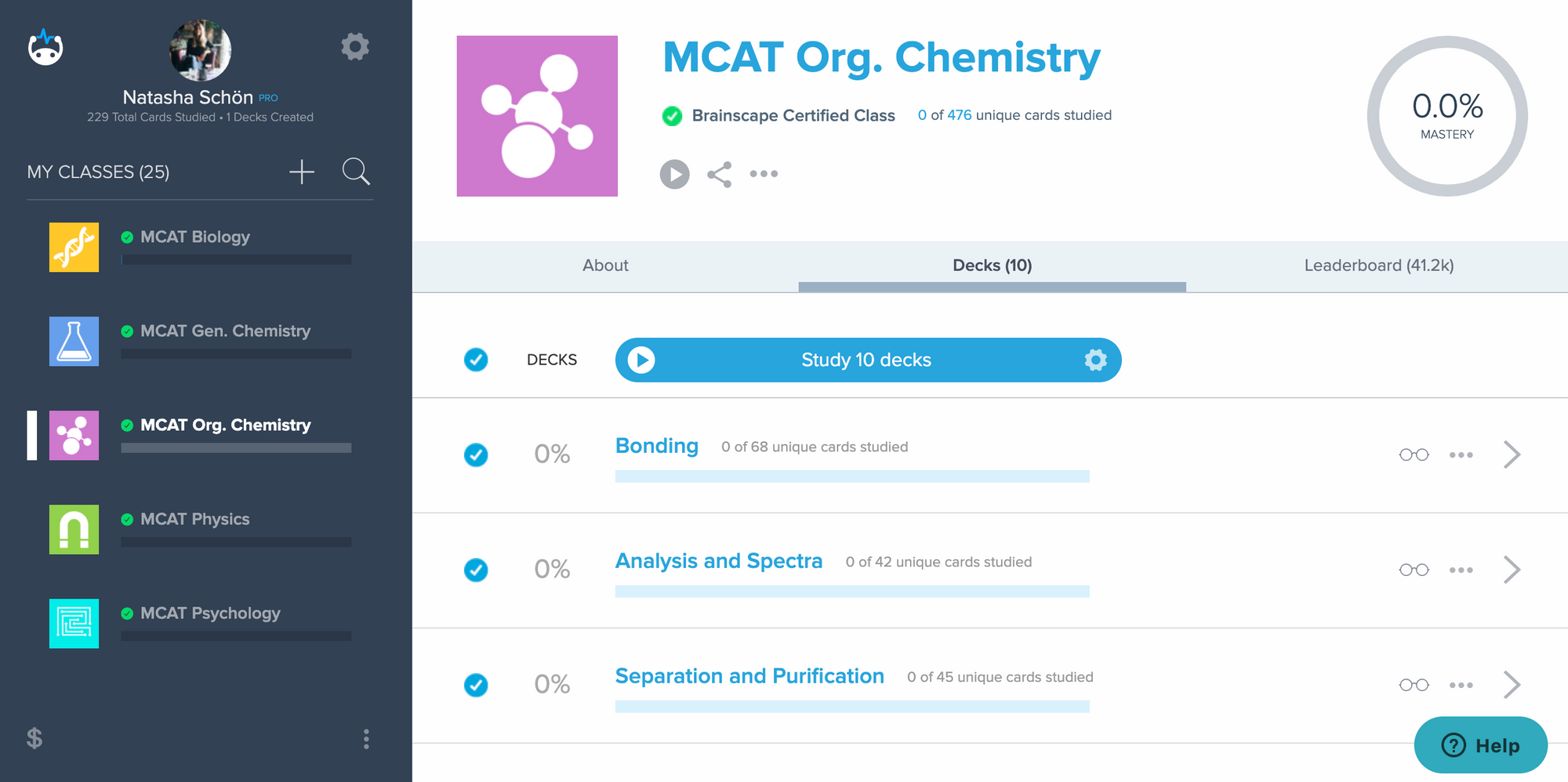Organic chemistry has long been seen as one of the hardest college courses by prospective medical school students. In fact, it’s rumored to cause more pre-med dropouts than any other subject.
So, is organic chemistry hard, or are we missing something? Why do so many pre-med students fear organic chemistry? Is this subject truly one of the toughest things you’ll ever learn? And if so, what can you do to succeed?
We’ll answer that question right here and, as a bonus, we’ll give you a few tips for staying on top of your orgo workload. Read on to learn if your fear of organic chemistry is justified!
What Is Organic Chemistry?
Organic chemistry (often called OChem or orgo) is the study of organic compounds and materials (organic in the chemical sense, meaning they contain carbon atoms). It’s a huge area of study that has applied uses in medicine, biology, engineering, and many other fields.
But is organic chemistry the hardest college course, and if so, why?
A lot of pre-med students think so! Here’s one reason: The number of inorganic chemical compounds known to science is around 100,000, but the number of organic compounds clocks in at over 15 million, and that number is rising rapidly as scientists study and isolate further compounds.
The second reason OChem is so difficult to learn is that it’s a memorization nightmare. Not only are there more than 15 million organic compounds, but there are also different rules governing the reactions and properties of each of these compounds. The trickiest part is how often the rules change. Depending on the environment in which a reaction takes place, the same conditions can lead to wildly different results. The rules are flexible, and there are always exceptions.
What Is The Best Way To Memorize Organic Chemistry?
According to education research, the best way to memorize any medical school topic is a digital flashcard app like Brainscape or Anki. Flashcards facilitate active learning by showing you a question and compelling you to come up with the answer from scratch, which helps you learn twice as fast as traditional passive study methods like reading notes.
Medical students who use flashcards score higher on the USMLE and the MCAT. As an added bonus, a study of medical students preparing for anatomy practical exams found that digital flashcards not only increased their confidence but also reduced anxiety and stress in 85% of participants.

Apps with adaptive algorithms, such as Brainscape and Quizlet, take the guesswork out of what to study by personalizing your flashcard timing to your study patterns, which is proven to improve learning efficiency among medical students. By removing the headache of working out what to study, they give you more motivation and more mental energy for actual learning. If you want to learn orgo faster and boost your exam scores, the best solution the world has created so far is digital flashcards.
Why Does Orgo Have A Language Of Its Own?
There's a huge amount of memorization; it requires learning and applying flexible rules; and with more than 15 million compounds to work with, there is essentially an infinite number of possible organic reactions ... the only way to navigate this web is to develop an intuitive understanding of how organic chemistry works.
That’s why it’s taught more as mathematics, a skill or language you must learn, rather than a rote memorization subject.
The day-to-day work of orgo students revolves around arrow-pushing: a technique of diagramming molecules that uses arrows to represent the movement of electrons as chemical reactions take place. As far as most students can tell, there is no way you’re going to memorize all the rules that govern those little arrows.
Instead, experts recommend that you treat learning organic chemistry like learning a language. Instead of worrying too much about memorizing every single rule, focus on the big picture. Look for patterns and work to build associations between linked concepts and processes. Strive for the implicit language learning skills that children are so good at.
Learn the language, and there won’t be a single question or scenario presented to you that you can’t logically work through and arrive at an answer.
What Is The Key To Doing Well At Organic Chemistry?
So, there you have it. The key to mastering organic chemistry, touted as the hardest college course, is learning its tenets like a language and applying them to each unique equation and scenario you’re presented with.
You don’t learn a language by memorizing sentences verbatim but rather by learning sentence structure, vocabulary, and grammatical rules. Once you have those down, you can use them to construct unique sentences that meet the requirements of the given context. The very same applies to organic chemistry.
And once you understand that, you’ll realise that you shouldn’t fear organic chemistry at all!
Good luck!
Additional Reading
- How To Study For The MCAT More Efficiently
- The Ultimate 3 Month MCAT Study Plan
- How To Do Well On The MCAT...The First Time!
References
Cole, R., McHugh, D., & Netter, F. H. (2017). Assessing emotional stress, active recall and digital spaced‐learning media in the Study of Thoracic Gross Anatomy by Medical Students. The FASEB Journal, 31(S1). https://doi.org/10.1096/fasebj.31.1_supplement.580.7
Deng, F., Gluckstein, J. A., & Larsen, D. P. (2015). Student-directed retrieval practice is a predictor of medical licensing examination performance. Perspectives on Medical Education, 4(6), 308–313. https://doi.org/10.1007/s40037-015-0220-x
Karpicke, J. D. (2012). Retrieval-based learning: Active retrieval promotes meaningful learning. Current Directions in Psychological Science, 21(3), 157-163.
Kerfoot, B. P. (2010). Adaptive spaced education improves learning efficiency: A randomized controlled trial. Journal of Urology, 183(2), 678–681. https://doi.org/10.1016/j.juro.2009.10.005
Orbell, S., & Verplanken, B. (2010). The automatic component of habit in health behavior: Habit as cue-contingent automaticity. Health Psychology, 29(4), 374.
